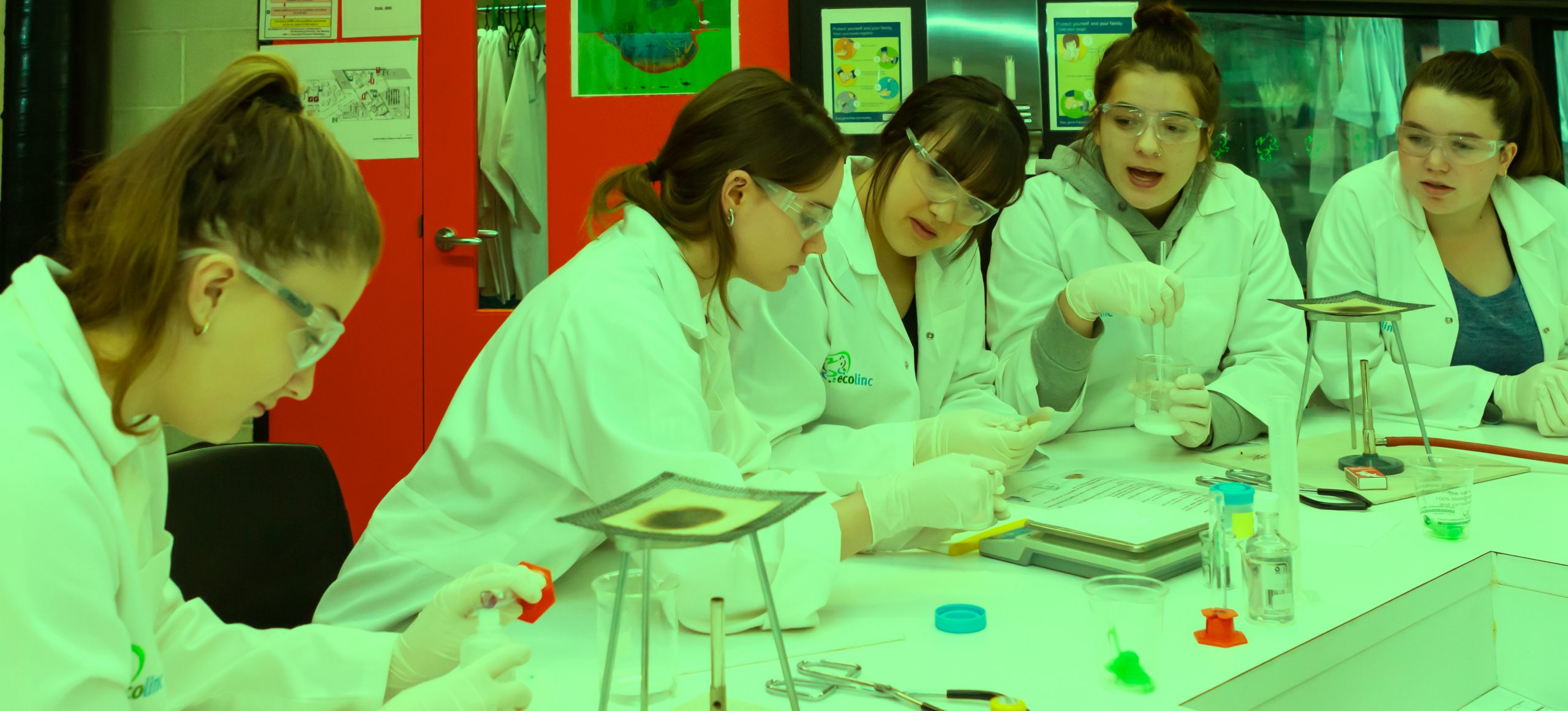
Green Chemistry
STEMLinc Video Conferencing: As the population on Earth continues to grow, the demand and pressure on resources will increase. Whether it be energy, water, food or shelter, as a society we need to move to a more sustainable approach of the use of these resources.
Green chemistry looks at the whole lifecycle of a product and its effect on the environment during those different stages. This includes obtaining resources to make the product, manufacture and use of the product and then finally recycling or disposal of the product. We have chosen to look at two products used widely throughout the world that have devastating effects on the environment at the present: Plastic and solvents.
In this program students will explore the chemistry of some common products such as cleaning agents and plastics including some sustainably resourced materials that can be used as alternatives.
In the first session, students will investigate plastics, how they are produced, how they are utilized by society, how they are recycled and finally what alternatives there are to current plastics. Students will learn how to make bioplastics derived from renewable biomass sources such as vegetable fats and oils, corn starch, or microbiota.
In the second session, students learn about the solvents and how they work. The chemistry of polar and non-polar solvents will be discussed. Students will watch the presenter extract Limonene from citrus using distillation and learn about its use as an alternative cleaning agent. (Image: Ecolinc)
Year Level: 9 – 10
Duration: 1 hour
STEM in a box: No
Prior Knowledge:
No prior knowledge required
Learning Intentions:
In this program, students will:
- Learn about the lifecycle of a chemical and how the environment can be impacted at every stage
- Understand how polymers are formed and some of the positive and negative aspects of their usage
- Learn about alternate materials such as Bioplastics and how they are formed.
- Learn how solvents work and how they are produced
- Learn about greener alternatives to some of the petroleum based solvents used today.
Activities:
In session one students will:
- view microplastics as seen under the microscope including micro plastic beads found in cosmetics, plastic glitter and view a sample of beach sand to see the microplastic contained there. Alternatives to these products will be discussed. Students will then watch the presenter as they go through the steps to make bioplastic from potato or tapioca starch. The recipe for this will be sent to teachers to distribute to students if they would like for them to then have a go at this at home.
In session two students will:
- learn about solvents, their uses and negative issues associated with them by watching videos and demonstrations by the presenter. They will also watch a simple dissolving experiment that explain polar and non-polar solvents. Finally the presenter will demonstrate how to extract limonene, a non-polar solvent, from orange peel.
Victorian Curriculum:
Science – Science as a human endeavour
- Advances in scientific understanding often rely on developments in technology and technological advances are often linked to scientific discoveries (VCSSU115)
- The values and needs of contemporary society can influence the focus of scientific research(VCSSU116)
Science – Chemical sciences
- Different types of chemical reactions are used to produce a range of products and can occur at different rates; chemical reactions may be represented by balanced chemical equations(VCSSU125)
Technologies – Technologies and society
- Critically analyse factors, including social, ethical and sustainability considerations, that impact on designed solutions for global preferred futures and the complex design and production processes involved (VCDSTS054)
- Explain how designed solutions evolve with consideration of preferred futures and the impact of emerging technologies on design decisions (VCDSTS055)
Bookings: This program is only available ON REQUEST
Please email us with your request for booking a time for this program: ecolinc@education.vic.gov.au
IMPORTANT: Cancellation Policy
- When you book you will receive an automated message from Eventbrite. Save this carefully please.
- Any cancellations need to be received in time for STEMLinc to re-sell your tickets to other teachers.
- Please use the Eventbrite confirmation email to facilitate any cancellation of your booking. That will automatically release your ticket for re-sale on our system.
| Date and Time | Ticket available | Booking link |
|---|
